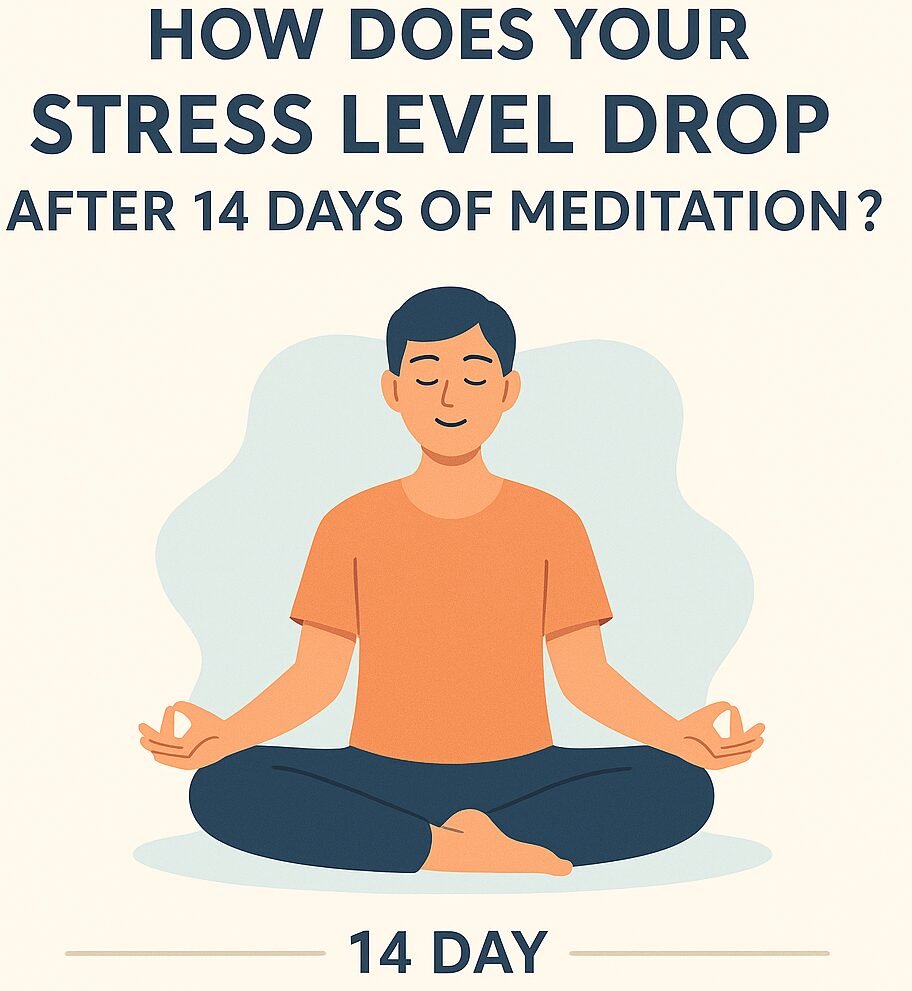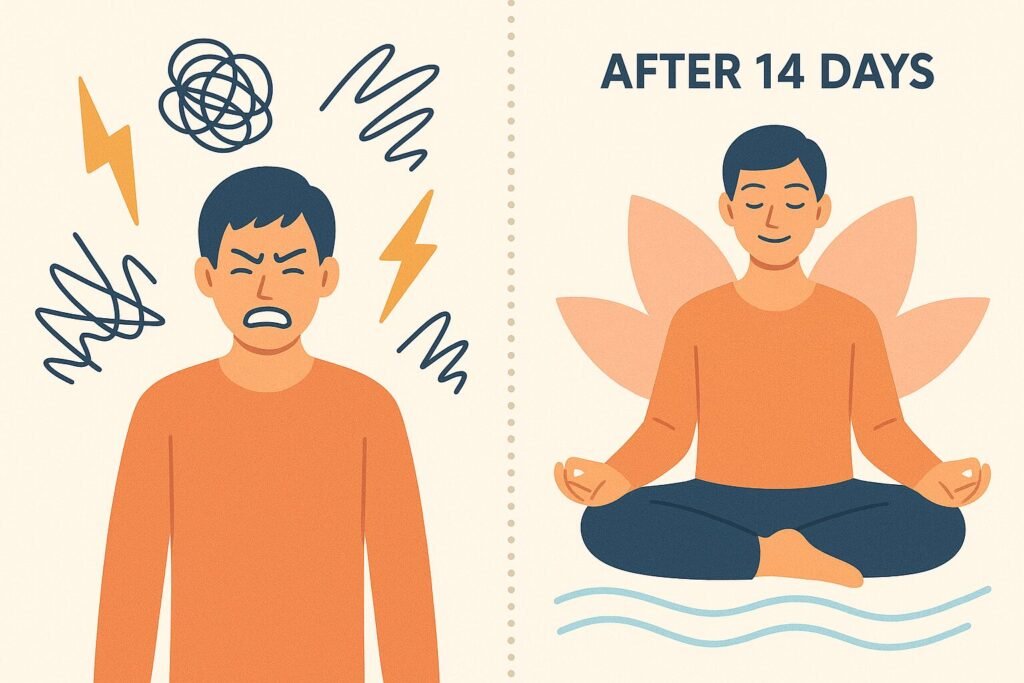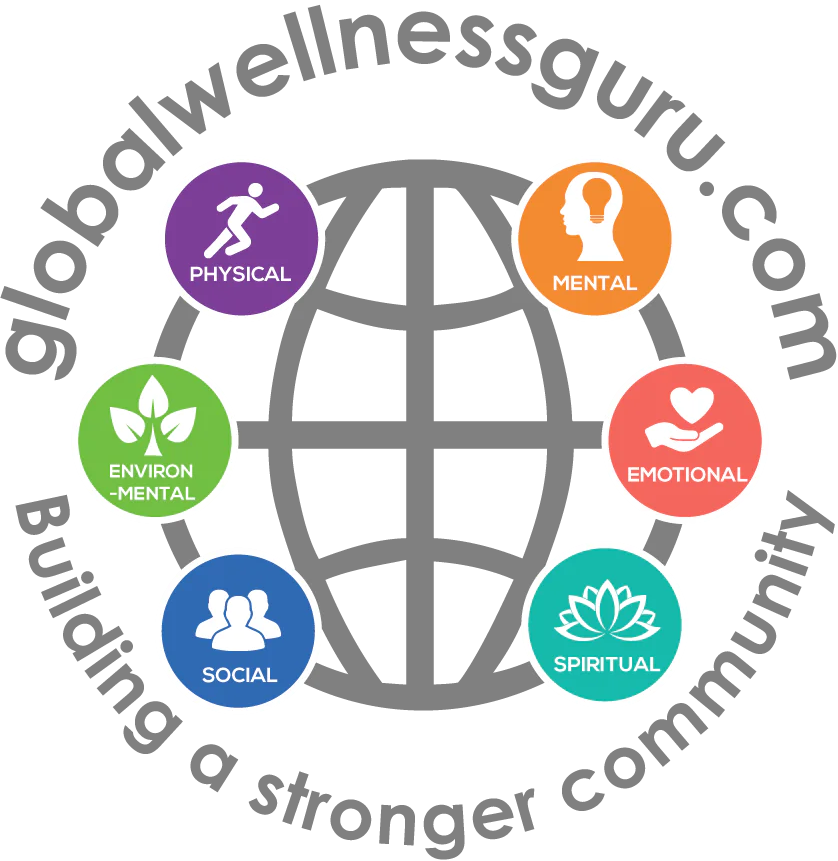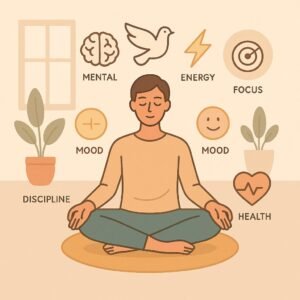Stress is a common challenge in today’s fast-paced world. Work deadlines, family responsibilities, and constant digital notifications can leave us feeling overwhelmed. Chronic stress can harm both mental and physical health, contributing to issues like anxiety, depression, heart disease, and a weakened immune system. Finding effective ways to manage stress is essential for a healthier, happier life.
Meditation, an ancient practice rooted in various cultural traditions, has gained widespread popularity as a tool for stress reduction. But how quickly can it make a difference? This article explores the scientific evidence behind meditation’s ability to lower stress levels after just 14 days of practice. Drawing on research from trusted sources we’ll uncover how meditation works, what you can expect in two weeks, and how to start your own practice.

The Science of Meditation and Stress Reduction
Meditation includes a range of techniques, but mindfulness meditation—focusing on the present moment without judgment—is among the most studied for stress relief. A comprehensive systematic review published in the Journal of the American Medical Association (JAMA) Internal Medicine analyzed 47 trials with 3,515 participants and found that mindfulness meditation programs showed moderate evidence of reducing anxiety, depression, and pain, all of which are closely tied to stress A systematic review published in JAMA Internal Medicine. While the evidence for stress reduction specifically was rated as low, small improvements were noted, suggesting meditation’s potential.
More targeted studies have shown stronger results for short-term meditation. For instance, a study on student registered nurse anesthetists (SRNAs), who face intense stress due to their rigorous training, found that a 10-day program using the Headspace meditation app led to a 47% reduction in stress scores A study on SRNAs using a meditation app. This study used the Depression Anxiety Stress Scales (DASS-21), a validated tool, to measure outcomes, highlighting meditation’s ability to deliver quick results.
Short-Term Effects: What Happens in 14 Days?
While many meditation studies focus on longer programs, such as 8-week Mindfulness-Based Stress Reduction (MBSR) courses, research on shorter durations is emerging. The SRNA study is particularly relevant, as its 10-day timeframe is close to 14 days. Participants practiced daily guided meditation via the Headspace app, resulting in a significant stress reduction (Z=-3.46, P<.01, 47% decrease) A study on SRNAs using a meditation app. Since 14 days extends slightly beyond this period, it’s plausible that consistent practice could yield similar or greater benefits, though no study directly examines this exact duration.

Another study explored brief daily meditation over 8 weeks, with participants practicing 13-minute guided sessions. At 4 weeks, no significant stress reduction was observed, but by 8 weeks, improvements in attention, memory, emotional regulation, and state anxiety emerged A study on brief daily meditation. This suggests that while some benefits may take longer, others, like stress relief, can begin sooner, especially with intensive or consistent practice.
| Study | Population | Meditation Program | Duration | Stress Effect | Measurement Tool |
|---|---|---|---|---|---|
| SRNA Study (2021) | Student Registered Nurse Anesthetists | Guided mindfulness via Headspace app | 10 days | 47% reduction in stress scores | DASS-21 |
| Basso et al. (2019) | Non-experienced meditators (ages 18-45) | 13-min daily guided meditation | 8 weeks | Decreased state anxiety at 8 weeks, no change at 4 weeks | Trier Social Stress Test (TSST) |
Intensive Meditation: Retreats and Beyond
For those seeking a deeper experience, meditation retreats offer intensive practice over short periods. A study comparing meditation retreats to regular vacations found that participants in retreats or vacations with meditation reported lower fatigue and higher well-being 10 weeks later compared to those on standard vacations A study comparing meditation retreats with vacations. While the exact duration of the retreats wasn’t specified, this suggests that concentrated meditation can have lasting stress-reducing effects.
Retreats often involve daily sessions of mindfulness, yoga, or other meditative practices, creating an immersive environment that may amplify benefits. For those unable to attend a retreat, daily practice at home can still be effective, as seen in the 10-day SRNA study.
How Meditation Works to Reduce Stress
Meditation reduces stress through both psychological and physiological mechanisms:
- Psychological Benefits: Mindfulness meditation encourages non-judgmental awareness of thoughts and emotions. This helps individuals observe stressors without reacting impulsively, breaking the cycle of stress escalation. For example, instead of spiraling into worry about a work deadline, a meditator might notice the worry and let it pass, reducing its emotional impact.
- Physiological Effects: Meditation can lower cortisol, the body’s primary stress hormone. A study on medical students found that mindfulness meditation significantly reduced serum cortisol levels, indicating a direct effect on the body’s stress response A study on cortisol levels in medical students. Lower cortisol levels can lead to reduced physical symptoms of stress, like tension or fatigue.
These mechanisms work together to create a calmer, more resilient state of mind, making meditation a powerful tool for stress management.

Types of Meditation for Stress Relief
Several meditation techniques have been studied for stress reduction:
- Mindfulness Meditation: Focuses on present-moment awareness, often through breath or body scans. It’s the cornerstone of programs like MBSR.
- Loving-Kindness Meditation (Metta): Cultivates compassion and positive emotions towards oneself and others, reducing negative stress-related emotions.
- Transcendental Meditation: Uses a silent mantra to achieve a state of relaxed awareness, shown to lower stress and anxiety.
- Yoga Meditation: Combines physical postures, breathing, and meditation to promote relaxation and mindfulness.
Each technique offers unique benefits, and individuals may prefer one based on personal comfort or goals. Mindfulness meditation is the most researched for stress, making it a great starting point.
Measuring Stress: Tools Used in Research
Studies use various tools to assess stress, ensuring reliable results:
- Depression Anxiety Stress Scales (DASS-21): A 21-item questionnaire measuring stress, anxiety, and depression. Used in the SRNA study A study on SRNAs using a meditation app.
- Perceived Stress Scale (PSS): Assesses how stressful life situations feel, common in meditation research.
- Cortisol Levels: Measures stress hormones in blood or saliva, as in the medical student study A study on cortisol levels in medical students.
- State-Trait Anxiety Inventory (STAI): Evaluates temporary and general anxiety, often linked to stress.
These tools provide both subjective (self-reported) and objective (physiological) data, strengthening the evidence for meditation’s effects.
Additional Benefits of Meditation
Beyond stress reduction, meditation offers a range of benefits:
- Emotional Regulation: Enhances control over emotions, fostering resilience.
- Cognitive Function: Improves attention, memory, and decision-making, as seen in the 8-week study A study on brief daily meditation.
- Sleep Quality: Reduces insomnia and promotes relaxation.
- Self-Awareness: Deepens understanding of thoughts and behaviors.
- Mental Health: Alleviates symptoms of anxiety and depression.
- Physical Health: May lower blood pressure and aid pain management.
These benefits make meditation a holistic practice for overall well-being.
Practical Steps to Start Meditating
Starting a meditation practice is simple and accessible. Here’s how to begin:
- Start Small: Practice 10-15 minutes daily. Apps like Headspace or Calm offer guided sessions for beginners.
- Find a Quiet Space: Choose a comfortable, distraction-free spot.
- Be Consistent: Meditate at the same time each day, like morning or evening, to build a habit.
- Try Different Techniques: Experiment with mindfulness, loving-kindness, or yoga meditation to find your fit.
- Join a Community: Local classes or online groups can provide support.
- Stay Patient: It’s normal for your mind to wander. Gently refocus without judgment.
Consistency is key, and even short daily sessions can lead to noticeable stress reduction within two weeks.
Frequently Asked Questions
What is meditation?
Meditation is a practice that involves training your attention and awareness to cultivate mental clarity, emotional balance, and a sense of inner calm. It often includes techniques like focusing on your breath, a mantra, or an object to help quiet the mind and foster mindfulness.
How long should I meditate each day?
For beginners, starting with 10-15 minutes daily is ideal. As you grow more comfortable with the practice, you can gradually increase the duration to 20-30 minutes or more, depending on your goals and schedule.
Can beginners meditate?
Absolutely! Meditation is accessible to everyone, regardless of experience. Beginners can benefit from guided meditation apps, online videos, or local classes, which provide step-by-step instructions to ease you into the practice.
When is the best time to meditate?
The best time to meditate is when you can maintain consistency. Many people prefer meditating in the morning to start the day with focus or in the evening to unwind before bed. Ultimately, choose a time that fits your routine and allows you to be present.
Do I need a specific posture for meditation?
No specific posture is required. You can meditate in any comfortable position—sitting cross-legged, on a chair, lying down, or even walking. The key is to maintain a relaxed yet alert posture that supports focus and prevents discomfort.
How soon will I see results from meditating?
Results vary, but many people report feeling calmer and more centered after just a few sessions. With consistent practice, significant benefits like reduced stress, improved focus, and enhanced emotional resilience may become noticeable within 10-14 days, though long-term practice deepens these effects.
Conclusion
While no study specifically examines 14 days of meditation, research suggests that even short-term meditation can significantly reduce stress. The 10-day SRNA study showed a 47% drop in stress scores, indicating that 14 days of daily practice could yield similar or greater benefits A study on SRNAs using a meditation app. Longer-term practices (e.g., 8 weeks) show even stronger effects, suggesting that benefits grow with time A study on brief daily meditation.
Meditation works by increasing awareness and lowering physiological stress responses, such as cortisol levels A study on cortisol levels in medical students. By practicing daily, you can cultivate a calmer, more resilient mindset. Starting a daily meditation practice is a practical, accessible way to manage stress, with apps and classes making it easy for beginners.
If stress is weighing you down, try meditating for 10 minutes a day. In just two weeks, you might feel lighter, more focused, and better equipped to handle life’s challenges






